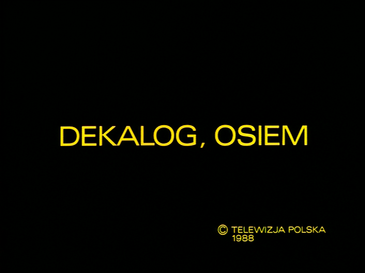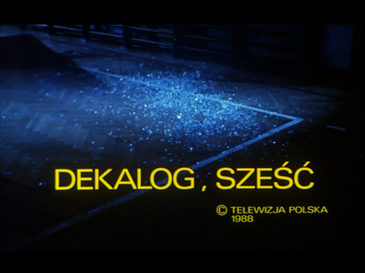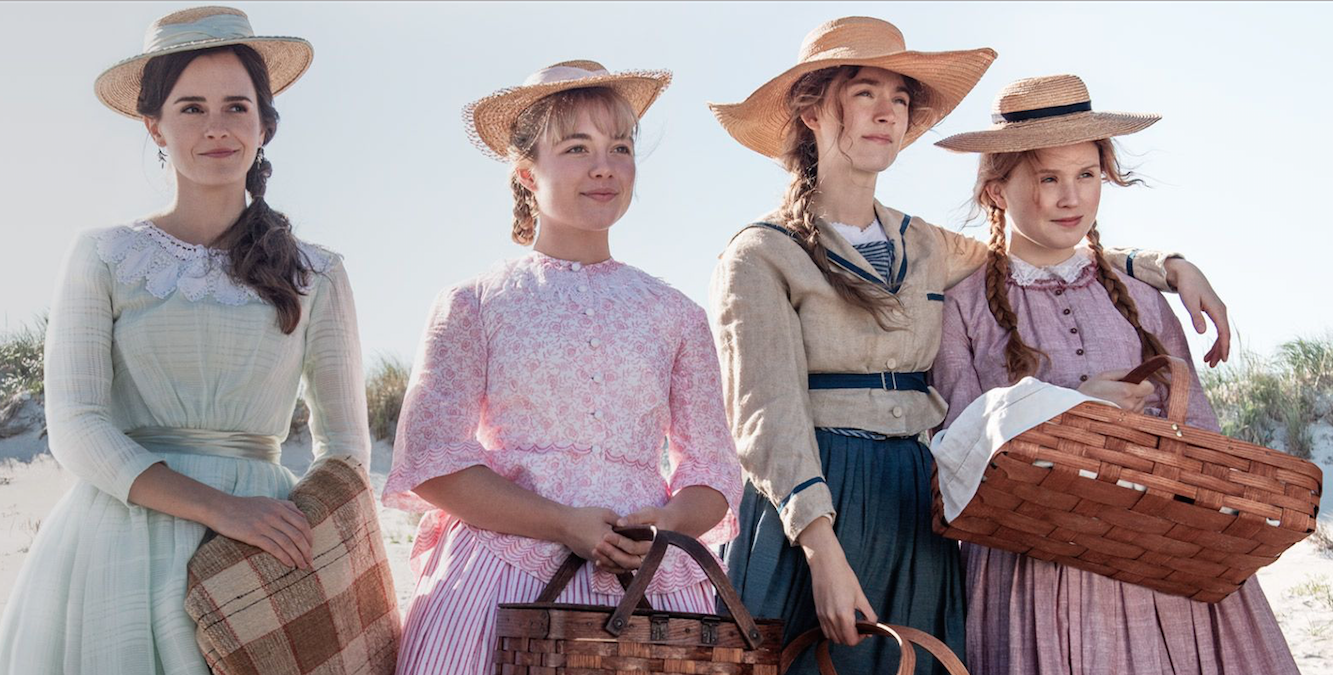
“Thou shall not bear false witness.” The eighth installment of the Decalogue is nothing new from the others in the series in that it presents a moral dilemma that has no easy answer, except this one sort of does. When an ethics professor is visited by someone from the past, she is confronted with the fact that her principles may have caused a little girl her freedom during the second world war. It is this story from the past that haunts our two characters throughout the film as the audience follows civil, composed confrontations about this incident. As the story progresses we see more of the truth start to emerge, and maybe the moral situation in question is actually easier than it seems initially. Yet as we hear more, we’re challenged as the audience to decide if we truly want to believe what we’re being told, if the characters are trustworthy or if their witness is false. If they are lying, the moral question here is just as convoluted as the other installments, but if they’re sincere then we see a nice break from previous installments and are able to appreciate this episode of reconciliation between two hurt souls. Either way, great questions are raised here.
This film also manages to make exciting connections to past installments of the Decalogue with short cameos or mentions of other characters from previous episodes who live within the same apartment building. This serendipity is a staple in Kieslowski’s films, (he does a similar technique in his Three Colors Trilogy), and it’s fascinating to see how he does it here, but perhaps it really isn’t that much of a coincidence. “Interesting building…” “Not really. Like any other one.”



